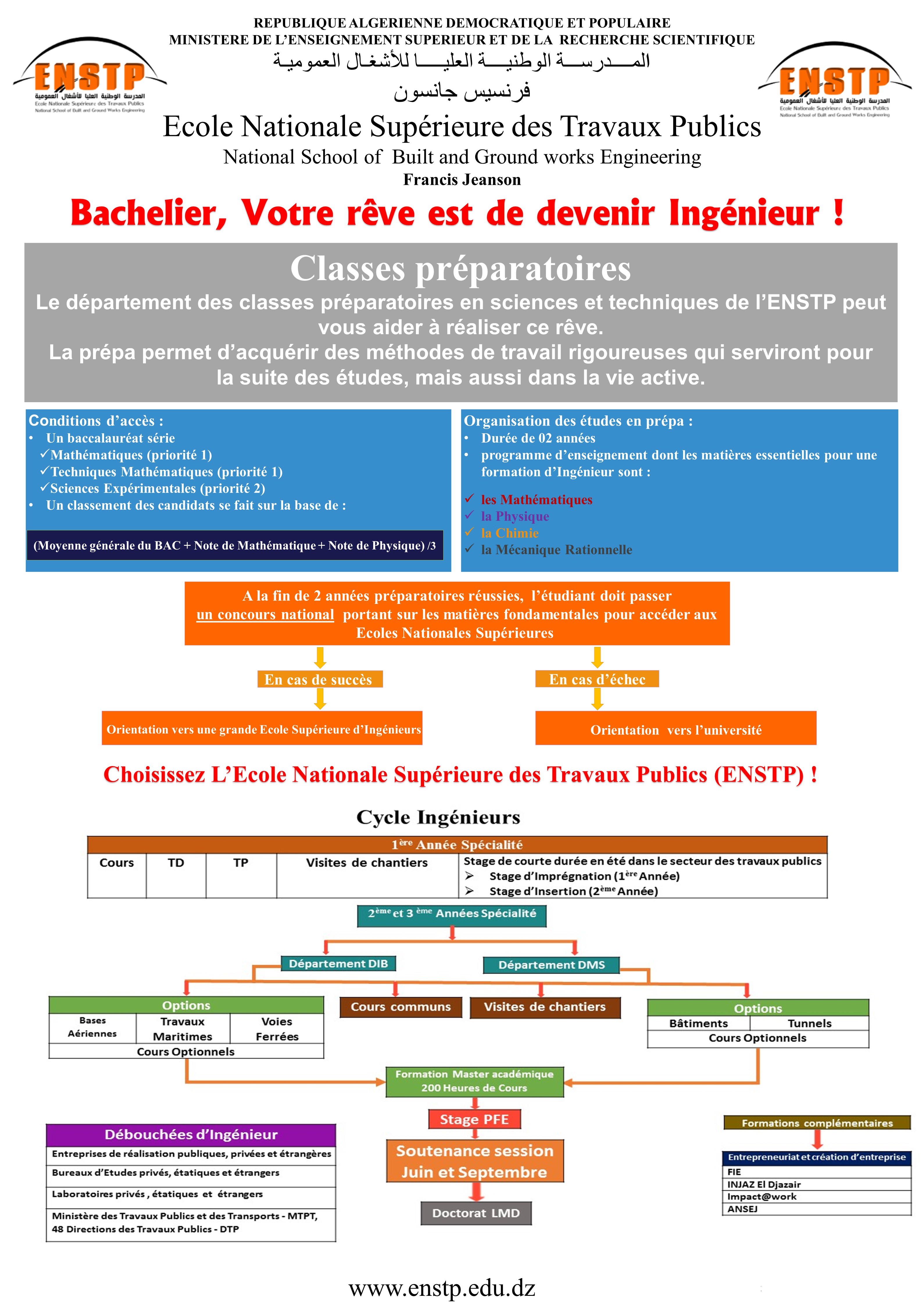
Presentation of ENSTP
The École Nationale Supérieure des Travaux Publics (ENSTP) is one of the leading institutions in Algeria, dedicated to training future engineers in the fields of infrastructure and public works. Its mission is to develop highly qualified professionals capable of meeting the technical needs of both the public and private sectors.
ENSTP stands out for its rigorous educational approach, combining a solid theoretical foundation with practical immersion in the professional environment. The school offers two main training cycles: preparatory classes, which provide students with essential scientific fundamentals, and the engineering cycle, focused on specialization and professionalization.
1. Preparatory Classes (2 years)
Admission Requirements:
- A scientific baccalaureate, with priority given to the Mathematics, Mathematical Techniques, and Experimental Sciences streams.
- Selection is based on an overall average combining the grades from the baccalaureate in the subject of mathematics and physics.
Organization of Studies:
- The main subjects studied are Mathematics, Physics, Chemistry, and Mechanics.
- 80% of the students admitted to the 2nd year of preparatory classes will advance to the 1st year of specialization. The remaining 20% will be selected through an exam organized by the school, open to 2nd-year preparatory students not ranked, as well as to external candidates.
2. Engineering Cycle (3 years)
First Year
- Specialization with theoretical and practical courses.
- Site Visits
- Internships: a short summer internship and two other immersion and integration internships in the 1st and 2nd years.
Second and Third Year
- Specialization according to the chosen department (DIB Department or DMS Department).
- Common courses and field internships.
- Specific options: airfield, maritime, and railway works.
- 200 hours of coursework for the preparation of the academic Master's degree.
Final Year Project
Defense before a jury in June or September.
Job Opportunities:
- Public and private public works companies
- Ministries, engineering firms, and other organizations related to public works.

